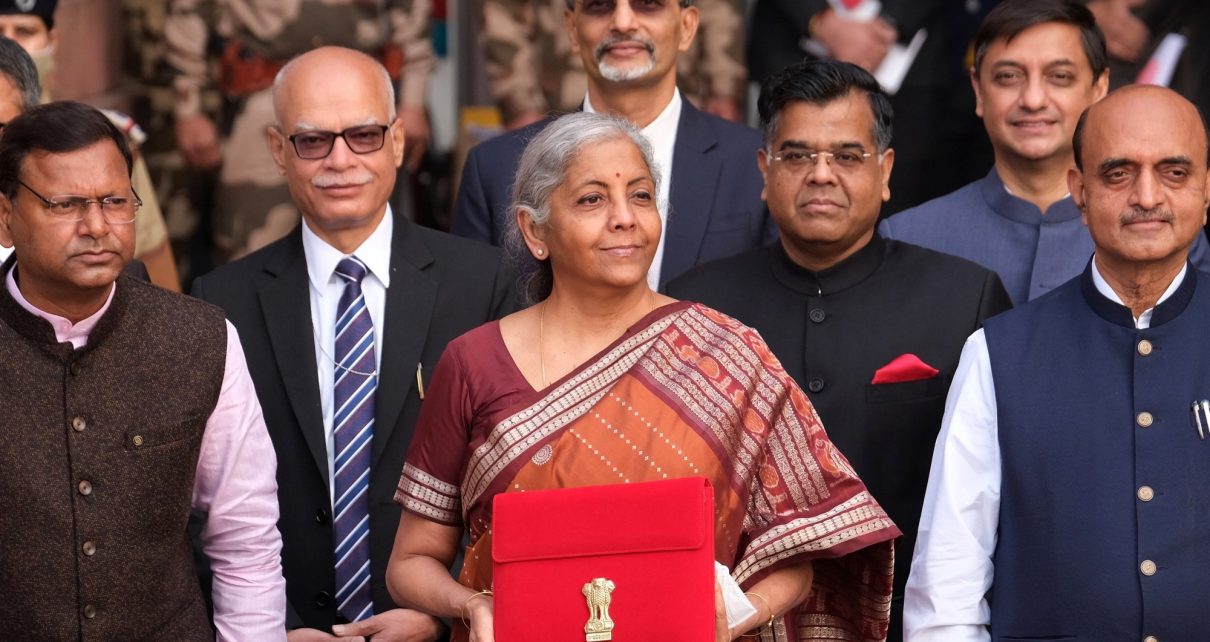Presenting the Union Budget 2022, Finance Minister Nirmala Sitharaman announced the formation of a digital university to provide access to world-class education to Indian students. The budget this year also focused on digital learning citing the prolonged closure of schools impacting students’ academic performance.
The minister also announced that the digital university will impart lessons in all regional languages creating a network of ‘hub and spoke’. The university will work with the other central universities in the country to provide the required digital infrastructure and training.
The Education and Skill Development sector looks happy with the Budget 2022.
Mayank Kumar, Co-founder and MD, upGrad said, “Extending the Digital India mission to strengthen online education, the Government’s plans to launch a Digital DESH e-portal for skilling, upskilling, and reskilling of the youth is a significant move and is in sync with the evolving times. The newly announced budget is very new age as it talks about establishing digital universities which in turn, shall accelerate quality output within the country. We welcome the introductions, as upGrad is equally focused towards driving maximum career outcomes for its learners and such initiatives will further support our mission. Clearly, accessibility and quality education are at the centre of GoI’s initiatives which assures that we are moving in the direction of achieving the United Nations SDGs, as a nation. Innovative mechanism for imparting knowledge, teacher’s training programs, and high-quality regional content for e-learning will be the focus areas for us and we are glad to see the national support towards the sector.”
Sonali Khan- Managing Trustee- Sesame Workshop India said, “I think it’s a great step to extend “One class One tv” to 200 channels. It will reduce the inequity in access to education for children without the internet and digital infrastructure while also making the content available to them in their local language. A National tele mental health program to support the mental wellbeing of families and revamp of 2 lakh Aanganwadi centers also holds strong relevance considering the impact the closure of schools and the pandemic has had on the lives of people. It will be good to link this back to the operationalization of NEP 2020’s compulsory education for children starting 3 years of age as part of the budget, who have been severely impacted by the pandemic in the most crucial way.”
Tara Singh Vachani – Managing Trustee – Max India Foundation 2.0 said, “Extremely pleased to hear about the increased budget allocation in the education sector from Rs. 88,002 crores to Rs. 1.04 lakh crores. It’s a much-awaited and welcome move.
Initiatives like the ‘One class, one TV channel’ program of PM eVIDYA to expand from currently 12 to 200 TV channels will be a path-breaking step in bridging the digital divide and the learning loss that the pandemic has caused. On the other hand, providing supplementary education in regional languages for classes 1 to 12 will be fruitful in ensuring inclusive learning for the children of the country”
Prajodh Rajan, Co-founder and Group CEO, Lighthouse Learning said, “The much awaited Union Budget has delivered many positive developments for the education sector. The implementation of One Class One TV Channel program of PM eVIDYA to be expanded from 12 to 200 channels, should help mitigate the learning loss our children have endured during the past two years as schools remain closed. This will definitely support supplementary education in regional languages for students across classes 1 to 12. A boost in the digital infrastructure across the country is essential and the mention of the completion of 5G spectrum auction in 2022-2023 will certainly help enable education institutions to attain the much needed learning outcomes. The Digital DESH e-portal set to be launched will help the youth in skilling, upskilling and reskilling so that they are ably employed and can contribute to the country’s economic growth. We will soon be a super-energised and digitised economy!”
Dr. Sunil Shukla, Director General, Entrepreneurship Development Institute of India (EDII), Ahmedabad said, “I am happy that the Union Budget for the financial year 2022-23 emphasises on key sectors such as education, health, infrastructure and MSMEs, thus focussing on growth and inclusive development. Announcements like a digital university for providing online education in multiple languages, digital ecosystem for skilling and livelihood—the DESH-Stack e portal that aims at empowering citizens to skill, reskill or upskill through online training, setting up of 750 virtual labs in science and mathematics, and 75 skilling e-labs for simulated learning environment showcases the intent of the government towards further augmentations and developments the skilling ecosystem and the education domain.
I appreciate that Startups have been encouraged through various measures – extending tax benefits for a year, earmarking 25 per cent of defence R&D budget for the industry – the vision has rightly focussed on building an environ which fortifies innovation, enterprise, academia and inclusive welfare. Interlinking of Udyam, e-Shram, NCS and ASEEM portals, and the extension of the Emergency Credit Line Guarantee Scheme (ECLGS) for one more year and expansion in its guarantee cover is further intended to formalise the economy and enhance entrepreneurial opportunities. All in all, I look forward to India gaining pace as an entrepreneurial nation.”
Dr. Dishan Kamdar, Vice-Chancellor, FLAME University said, “The decision to establish the digital university is a disruptive and futuristic decision that will benefit a large number of students even from the remotest part of the country by making world-class education accessible. This will surely give wings to the dreams of deserving students and meet the goal of providing high-quality education to all students across the country.
The plan to increase the ‘One Class One TV Channel’ from 12 to 200 TV Channels in all States in India will enable students to learn through radio and DTH channels thereby overcoming the problem of internet connectivity. The two decisions truly reflect the Government’s aims to leverage technology advancements and use them as tools to meet the educational aspirations of a large number of students in the country. They have set an example that is worthy of being emulated by others.”
Professor Ramola Kumar, Dean, The Delhi School of Communication said, “The Union Budget 2022 is rightly focused on reviving the country from the aftermath of COVID-19 pandemic and ensuring sustainable economic growth. The government has made a good effort to get the economy back on track, following the devastating impact of the Covid-19 outbreak, which affected the entire country. We applaud the budget because it appears to be quite forward-thinking in terms of social development and skill development for national upliftment. In a post-covid era, however, some tax relief for the service industry, particularly education, would have been beneficial.”
Sumeet Mehta Co-founder and CEO of LEAD has voiced out his opinion on the major announcements in the education sector, “Overall, this has been a progressive budget as it accelerates the government’s efforts towards inclusive and sustainable development. As an educator, I welcome the emphasis on creating digital and free-to-air channels of education. However, at the same time, the budget appears to circumvent physical schooling. I sincerely hope that is not the case. While online learning was inevitable due to the Covid-19 pandemic, it would never be as effective as offline learning, which brings out the best in students in terms of learning outcome and performance. Online education can at best only play a supplementary role in education. I would have also loved to see a greater focus on improving the teaching and learning processes in our schools vis-a-vis infrastructure and tech-enabled curriculum. Going forward, I hope there will be policy changes in that direction.”
Rajiv Tandon, CEO-Executive Education at BITS Pilani WILP, said, “Digital Desh e-portal for skilling, upskilling and reskilling the youth is a powerful idea, however I feel chances of its success can be greatly enhanced by adopting best practices on offering e-learning programmes and content from both Desh and Videsh. For the Digital Desh e-portal, the concerned Gov stakeholders must consult with top tier Indian and international universities and corporations that already have a rich and long experience with offering programmes over e-learning platforms. Be it curriculum, pedagogy or content the Digital Desh e-portal must incorporate the best practices from all over the world to make its intended impact”.



